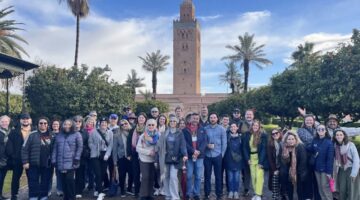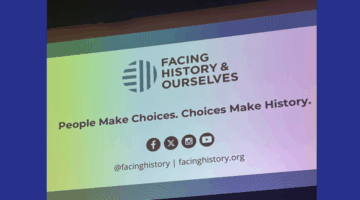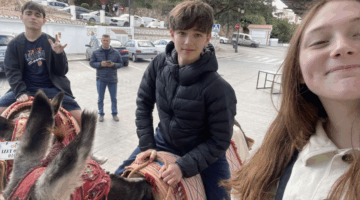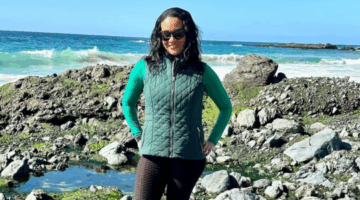Top 10 Tips for ACIS Group Leaders
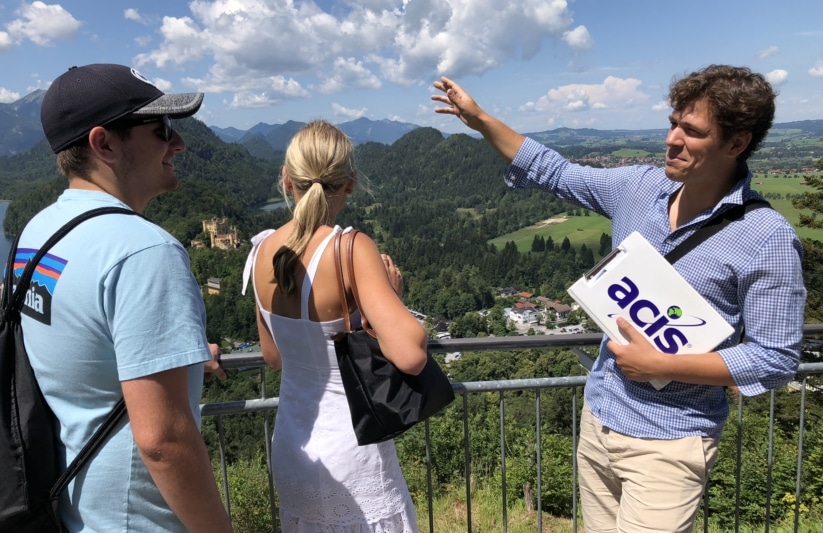
Over the course of 45 years, we have sent thousands of teachers abroad with students, and though every ACIS Educational Tour is unique, the most successful ones are all linked together by a strong group leader.
We asked our Program Consultant team their best tips for ACIS Group Leaders to set them up for success, and these are their top 10 pieces of advice for running a successful tour!
Discover our Group Leader Academy to learn more about best practices
1. Be Flexible and Go With the Flow
Things will go wrong in travel: It’s part of the adventure! We’ll be there to help with the big issues, but having a flexible mindset is going to make the experience much easier all around. Whether it’s obvious or not, the group will be looking to you to set the emotional tone for the situation, and the group will proceed through any challenges much more smoothly if leadership is relaxed.
Plus, you never know the doors that will open when another closes.
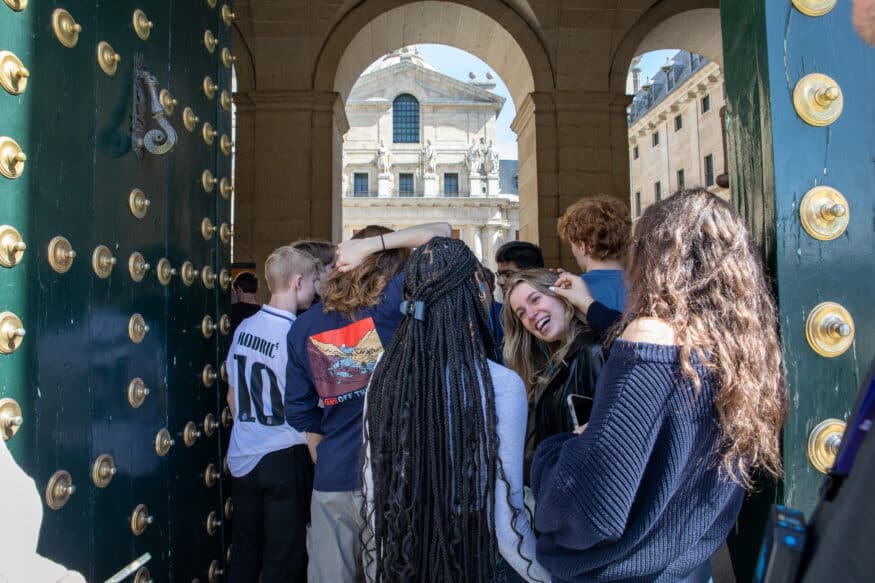
2. Don’t Overbook a Trip
It’s tempting to want to fill every moment with activity when planning an educational tour. You are there to learn, so why wouldn’t you want to fit in as many sights as possible? The thing is, learning happens on tour even without a pre-planned activity, and some of the most memorable experiences can happen when you least expect.
Our advice is to work with your Program Consultant closely on the flow of the trip. The itineraries have a lot included as is, and the planning team will be able to provide guidance on the cost/benefit of adding anything more.
3. Stay Connected Pre-Trip
The fun starts before you ever travel overseas! Build pre-trip excitement by staying connected with students. Use group chats and emails to share pre-trip details, discussions on itineraries and shared research to ensure everyone is prepared and enthusiastic for the adventure. Keeping connected for the pre-trip buzz is also a good way to keep on top of rooming, packing and logistics.
4. Share Your Passion for the Destination
As is the case with teaching, students can tell when you’re truly excited about something and that can make all the difference in engagement. Make the trip planning come alive by sharing your passion for the places you’ll be traveling – Even if you’ve never been there yourself! The more genuine enthusiasm you show, the more likely students are to want to be a part of the adventure.
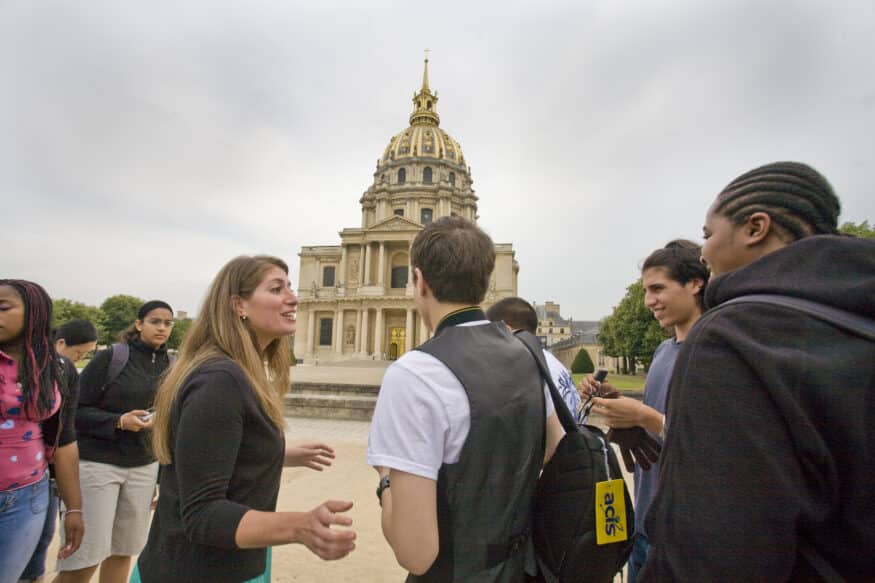
5. Stay Present (And Help Students Do the Same)
Encourage students to be fully engaged in the moment. From learning from the tour manager and local guides, to taking a moment to appreciate walking old world streets, being present amplifies the amazing experiences of the trip.
6. Keep a Sense of Humor
See rolling with the punches in our first tip! Sometimes, all you can do is laugh at the little moments. Take, for example, the summer 2023 group traveling on the Dublin, York, Paris and London itinerary. At one point, their bus was barely wide enough to fit through the centuries-old tunnels of York, and the Group Leader stepped up to guide the bus through. It became a funny story, complete with photos, that the group will remember for a long time.
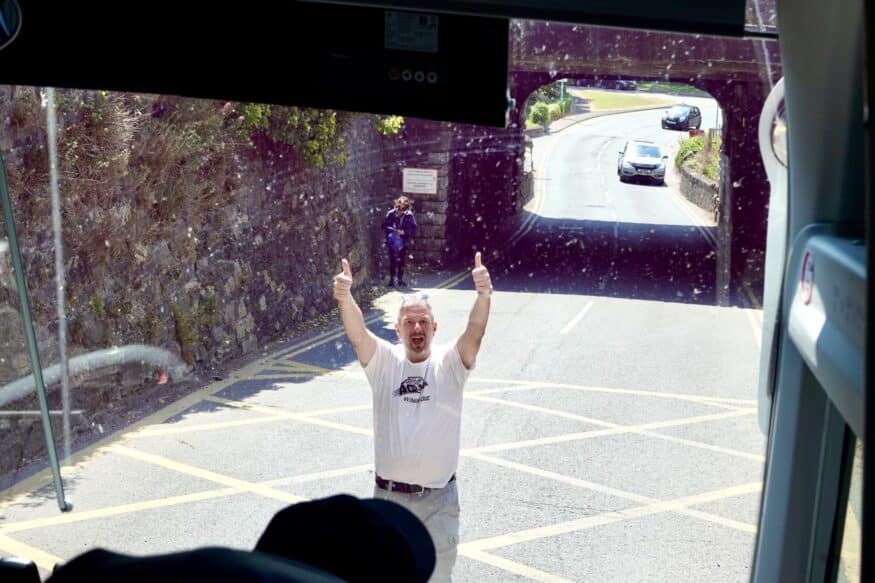
7. Find Value in the Little Things
It could be an obscure portrait in the Louvre or a Florence street seranade. Maybe a student has a lightbulb connection to a classroom topic or simply gets wide eyed at the expanse of the scenery. In any case, being open to the value of the small moments in the trip will make it so much richer.
8. Give Participants Dedicated Time to Reflect
Some of our most successful group leaders make time for independent reflection on tour. The struture is fluid, from sending students off on free time with a prompt to consider or building in 30 minutes of journaling before everyone heads to bed. The bus rides between cities are also a great time to provide contemplation questions.
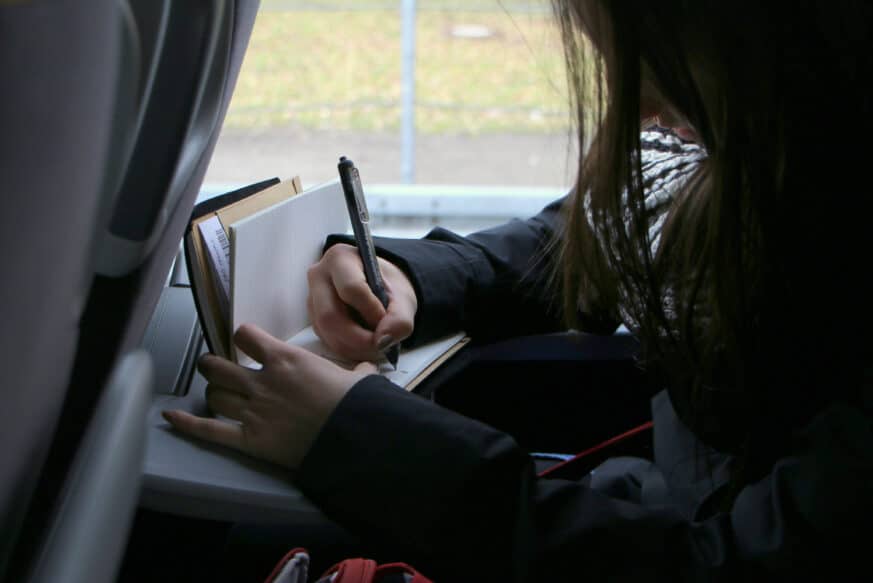
9. Communicate With Individual Travelers Daily
Aim to have a one-on-one conversation with each student daily. This allows you as a Group Leader to check in on each participant to see how the trip is going. It’s also a chance for you as a teacher to make key connections back to the classroom.
10. Incorporate Student Feedback on Tour
On a hot day in Athens, you’ll want to take a literal and metaphorical group temperature check. Maybe the students are fatigued and need to rest. Maybe there is free time ahead, but they’re more interested in additional touring. Check in with the group’s needs, and the Tour Manager will work with you to make any possible adjustments.
Discover more tips for ACIS Group Leaders in our 101 guide to planning an educational tour!



